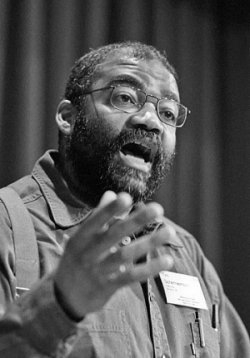A Transit Worker's Perspective on the Strike and the "No" Vote

According to one rank-and-file member of Transport Workers Union Local 100, members' strike and 'no' vote have the potential to change both themselves and the balance of power.
"Strikes change people, change their consciousness--even a short, practice strike like the one we just had," says Tim Schermerhorn, a former Local 100 vice-president. He suggests that the strike could potentially give birth to a new generation of more militant workers.
"The leadership of our local was not prepared for a strike and there were no plans in place. So whatever organization happened, it happened quickly, and it absolutely happened from the bottom up. And folks were extremely proud of that.
"Even though [Local 100 President] Roger Toussaint took us back in--and way too early--the rank and file had a taste of something real, a taste of genuine social power. And the contract Toussaint brought to the workers fell too short of their expectations." Schermerhorn has suspicions about the slim margin of victory for the 'no' vote--he thinks it could have been larger than a mere seven votes. "The voting was Internet-based and there was no paper record," he points out. "We've seen what the government does with paperless voting."
Schermerhorn believes that labor contracts are increasingly going to be negotiated with "bare knuckles," with fewer cushions to soften economic blows.
With health care a volatile issue in every industry, Schermerhorn says that for many Local 100 members, worker contributions for health benefits was a deal-breaker.
DEAL BREAKER
"For many, if not most, they rejected having to pay anything for their health coverage. The negotiated contribution formula was a percentage of a worker's gross salary.

SUPPORT LABOR NOTES
BECOME A MONTHLY DONOR
Give $10 a month or more and get our "Fight the Boss, Build the Union" T-shirt.
"So for those who are already working a tremendous amount of overtime because of personal debt, or child support or just trying to survive, those workers would be hit hardest on the new health-care contributions. And many couldn't face one more bill."
Schermerhorn continues, "As for a smaller core of our more militant workers, the MTA (Metropolitan Transportation Authority) tried to get us to swallow a 37-month term, meaning our contract would expire three years from now in January, not December. That takes away the Christmas leverage for a strike, and that was grossly unacceptable."
Schermerhorn says members were also skeptical about negotiated pension refunds. "Most folks realize that once you give up money, it's unlikely you're ever going to get it back. Governor Pataki had vowed to block those refunds. So despite Toussaint insisting the money would be forthcoming, workers weren't buying it."
NEXT STEPS
Another transit strike is not necessarily pending, and a final contract could take months to resolve.
"When you look at the big headline strikes that failed in recent times--the newspaper workers in Detroit or the grocery workers in California--in this period, it's extremely rare that working people can flex their muscles and come out with something gained," says Schermerhorn.
"And without sounding grandiose, I think a lot of eyes are on us. I think we're taking our strike ship into open seas now and we're carrying cargo for unions all over the country.
"There's a lot of uncertainty, but a lot of anticipation. And I think we'll ultimately dock with something positive for our own rank and file, and a hell of a lot of encouragement for workers everywhere."





